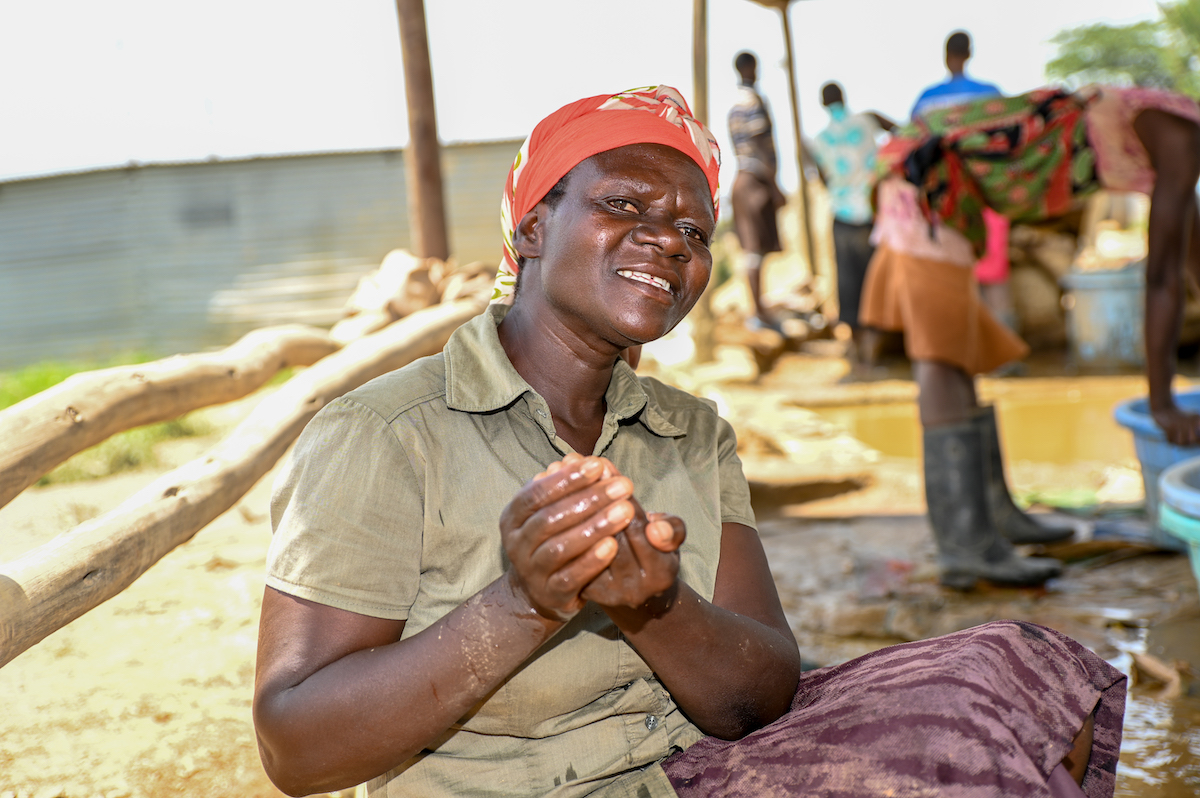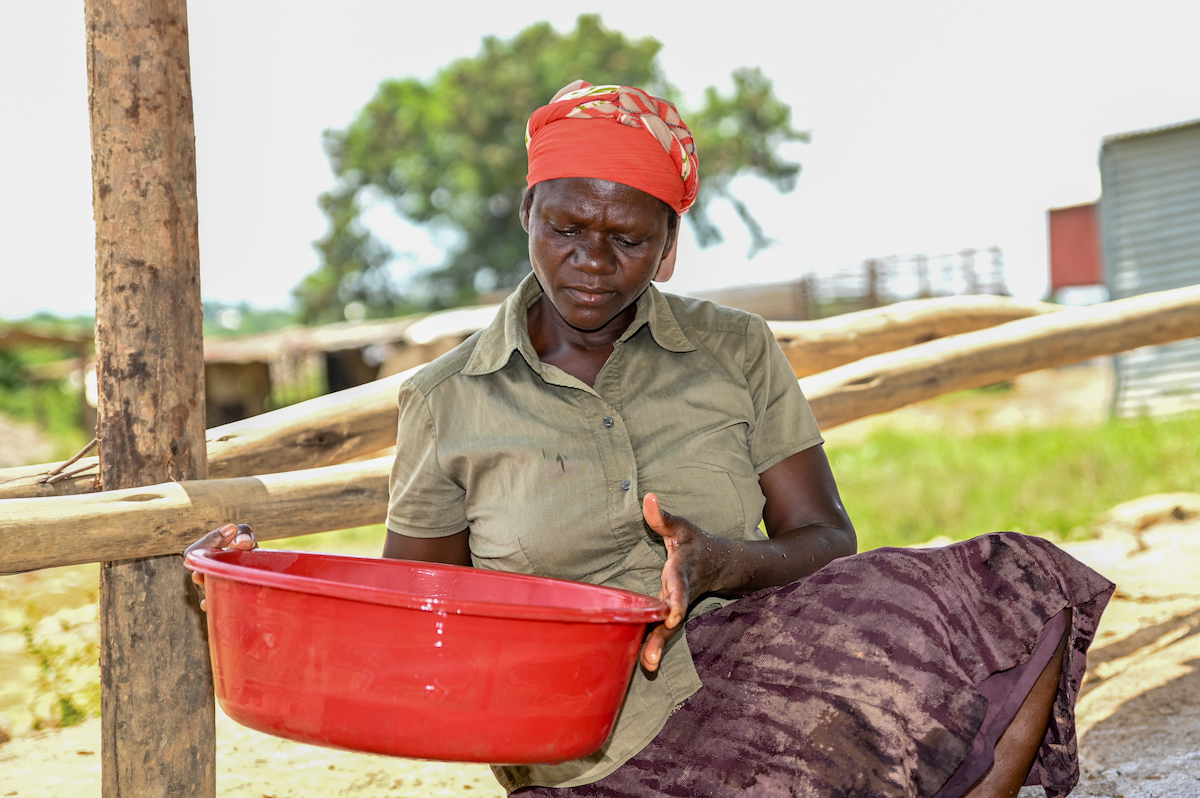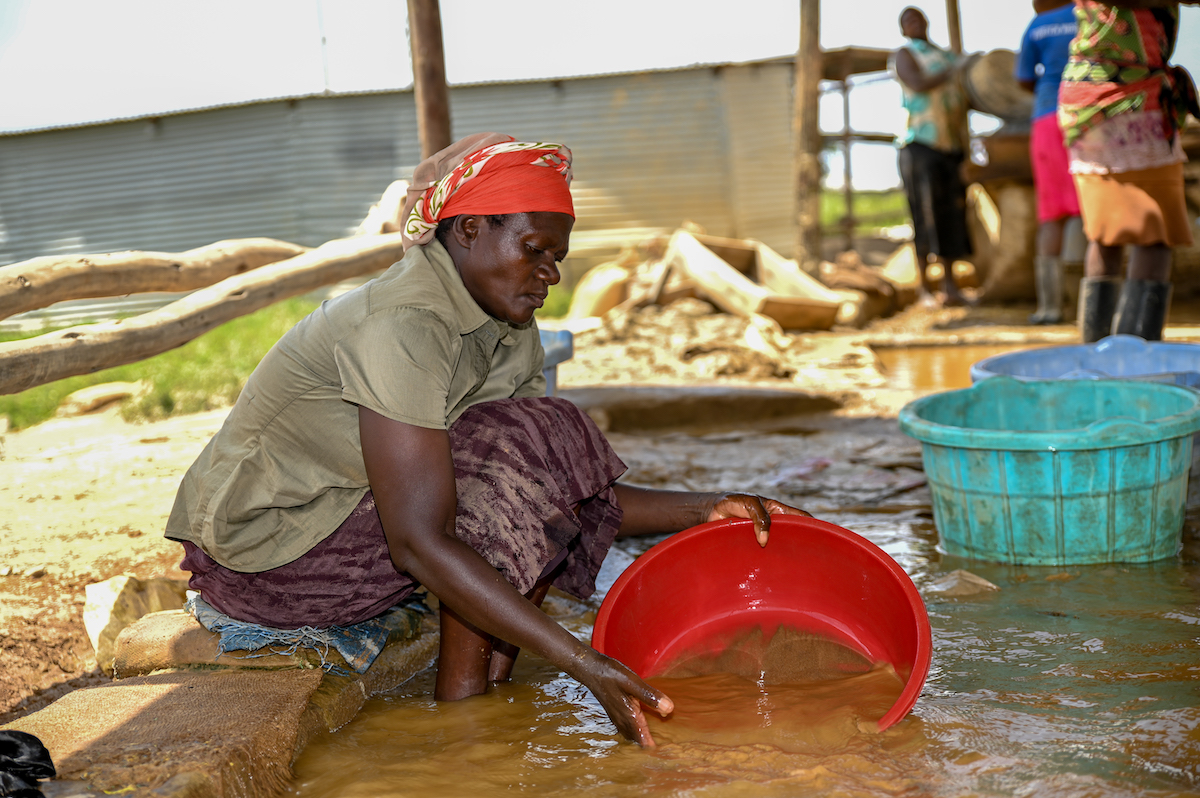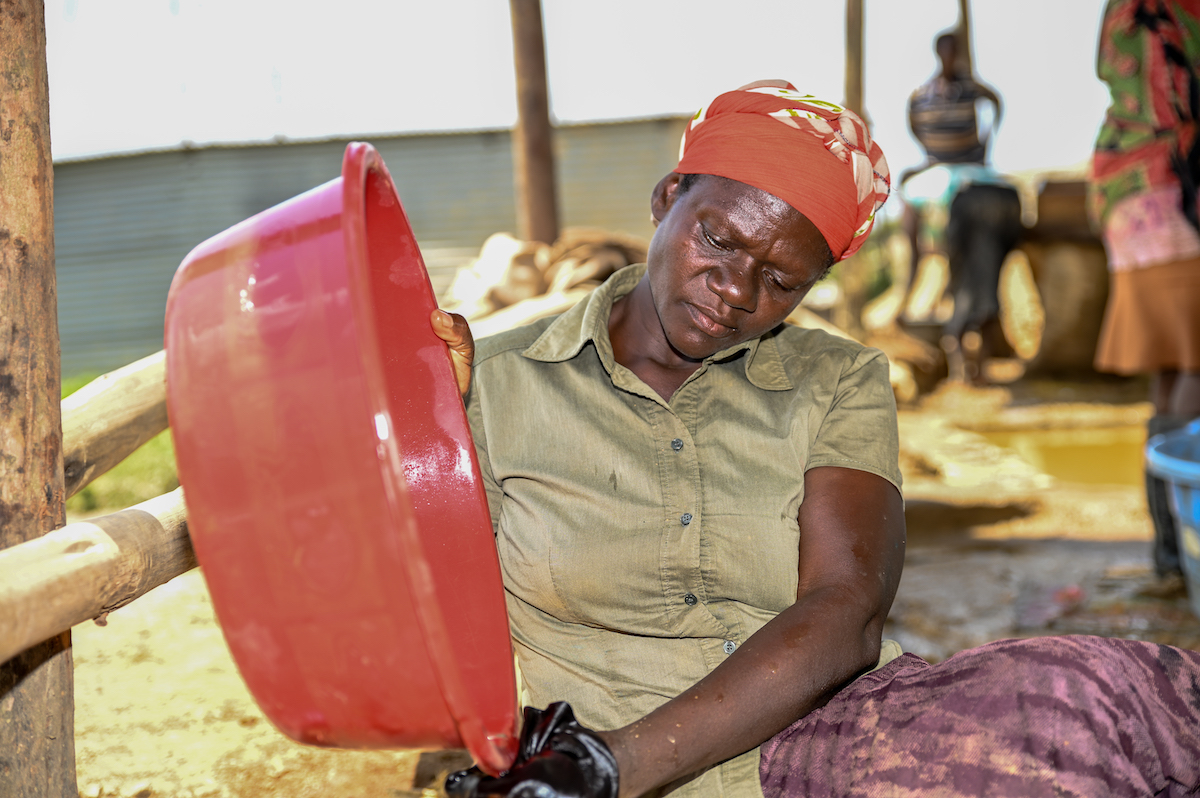Eunice Atieno at work at the Osiri Matanda gold mine in Kenya.
Approximately 38 percent of the artisanal small-scale (ASM) gold mining workforce at the Osiri Matanda gold mine in Migori County, Kenya, is women. During the extraction process, it is primarily women who manually crush the ore to extract the gold.
After grinding down the ore, these skilled women concentrate the gold using a traditional sluice washing method. Throughout the process, women are exposed to harmful silica dust, which increases the risk of respiratory illnesses like silicosis, chronic bronchitis, and tuberculosis.
Eunice Atieno, 45, is employed at the Osiri Matanda gold mine. Over her 10 years at the mine, she has sharpened her sluice washing skills and become an effective team member at the mine. She is also a health and safety advocate teaching other workers, especially the women, techniques to safeguard their health and avoid physical harm while ensuring environmental sustainability and compliance with responsible mining practices.
Working at the gold mine is a necessity for Eunice. Since 2016, she has supported her family of five following the loss of her husband, Bernard Ochieng, who succumbed to tuberculosis that he contracted at a mining site.
Eunice’s day starts early. Beginning at 5am, she feeds her children breakfast and prepares them for school. After taking her youngest to school, she fetches water and does laundry at a nearby river.
As a mine worker, she waits outside the shaft at the washing area while men bring out ore, which she helps sort and crush. The pulverized, sandy ore is then dried and sent to the wash plant. Eunice is aware of the risks in the wash plant. She has even contracted pneumonia due to prolonged exposure to the plant’s cold water and a lack of protective gear like gumboots and gloves.
RECLAIM Sustainability! supports women gold miners
Solidaridad’s RECLAIM Sustainability! initiative promotes a responsible gold value chain by ensuring ASM miners, many of whom are women, work in safe, legal conditions, earn fair wages, and have better bargaining power with buyers and investors.
Eunice sluices and washes sand at the gold mine.
“The risks at the wash plant are gender-based since women do the washing. I’ve developed pneumonia, and it’s challenging because I’m the sole provider for my family,” says Eunice.
“I need protective gear to stay healthy and support my family. Solidaridad has been very supportive, providing us with Personal Protective Equipment (PPE) kits and education to ensure our safety.“
At the washing plant, where sand is cleaned in a sluice box, toxic mercury exposure occurs as residues are washed out for gold amalgamation. Eunice received training from Solidaridad to learn about mercury’s effects on mine workers and communities. Before her training, she occasionally brought mercury home, unaware of its dangers. Now, she educates other women at the mine site about responsible mining practices.
“I didn’t know about the risks of mercury until the training. My air was sampled in 2017 and tests revealed the presence of mercury particles. I worry about the implications of these results to my health,“ says Eunice.
The health of women is crucial to their families’ well-being, and Eunice emphasizes that women must receive training on mine site safety hazards.
After participating in the RECLAIM Sustainability! gold programme training, Eunice has worked to educate women at the mine site, but she still faces resistance. Some workers believe that mercury’s dangers are overstated, or they attribute their health issues to witchcraft, rather than to mercury exposure.
Financial challenges & child labor
Working a day at a mining site poses challenges for women like Eunice, who often struggle to manage their own household income. She shares that some days are successful, while others end in defeat in the male-dominated industry.
“At times, we receive sand with no minerals and spend a whole day sorting it only to find pure dust. Mine owners rarely negotiate with women, focusing their discussions with men. We often return home empty-handed, which is disheartening,” says Eunice.
Gender training through Solidaridad’s Start Awareness Support Action (SASA) methodology has helped miners, like Eunice, identify exploitation at the mines where common inequalities include owners who withhold or delay payments to women or pay less for the same work.
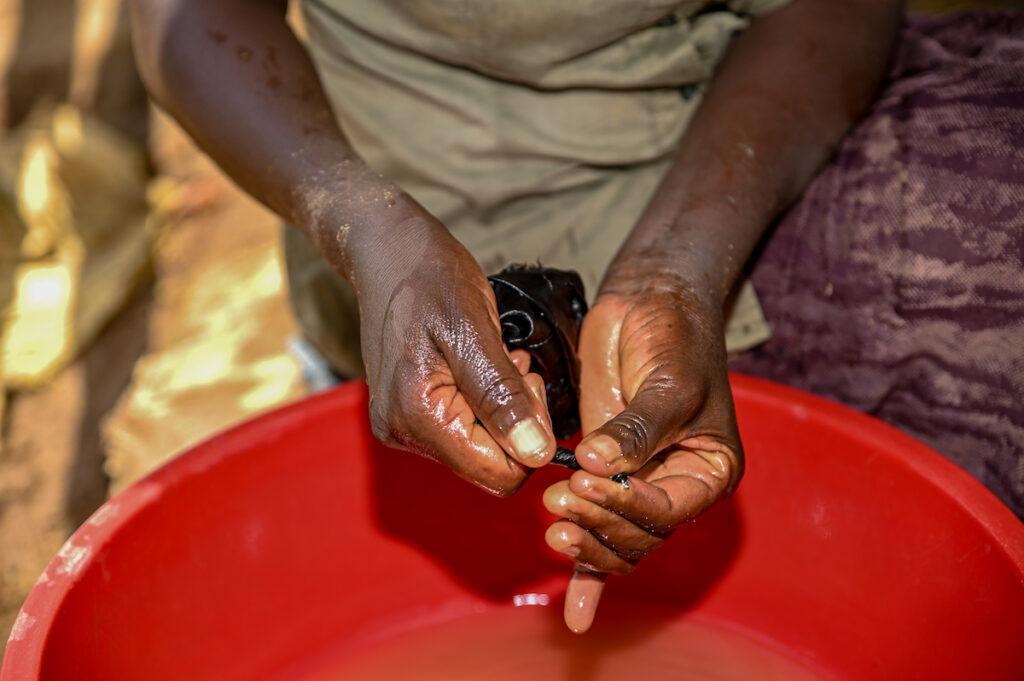
Low income also contributes to an increase in child labor and limited access to education. In the Osiri Matanda community, school absenteeism is a major issue. Children living near the mine site face significant challenges impacting their health and education. Limited efforts have been made by local officials to monitor child labor, but the challenge remains.
“Parents play a critical role, but they frequently fail to support their children’s education. Some parents bring their children to work, jeopardizing their future,” said Eunice.
“Others, notably boys under the age of 18, go away to offer aid in the mines when faced with financial difficulties, resulting in very few [of them] completing their education.”
Women standing up for fairness
Gender equality and social inclusion remain significant challenges in mining communities; Eunice advocates for fairness.
Gender training has taught us that everyone should contribute their earnings to the household budget to ensure fair distribution and financial equality.
Eunice Atieno
Gender-based discrimination, child labor, and resistance to change persist in the Kenyan gold mining sector. Women continue to face significant health risks as they work in challenging conditions at gold mining sites, but Eunice has become a powerful advocate for safety and equality in Kenya’s gold mining sector.
About RECLAIM Sustainability!
Solidaridad is implementing its RECLAIM Sustainability! project, a five year programme funded by the Ministry of Foreign Affairs of the Netherlands in partnership with the Center for Environmental Justice and Development.
Together with our partners, we strive to foster genuine and inclusive sustainability in global value chains. Gender and social inclusion are an integral part of our initiative, and the voices of farmers, miners, workers and citizens are well represented in the decision making that strengthens civil society.

